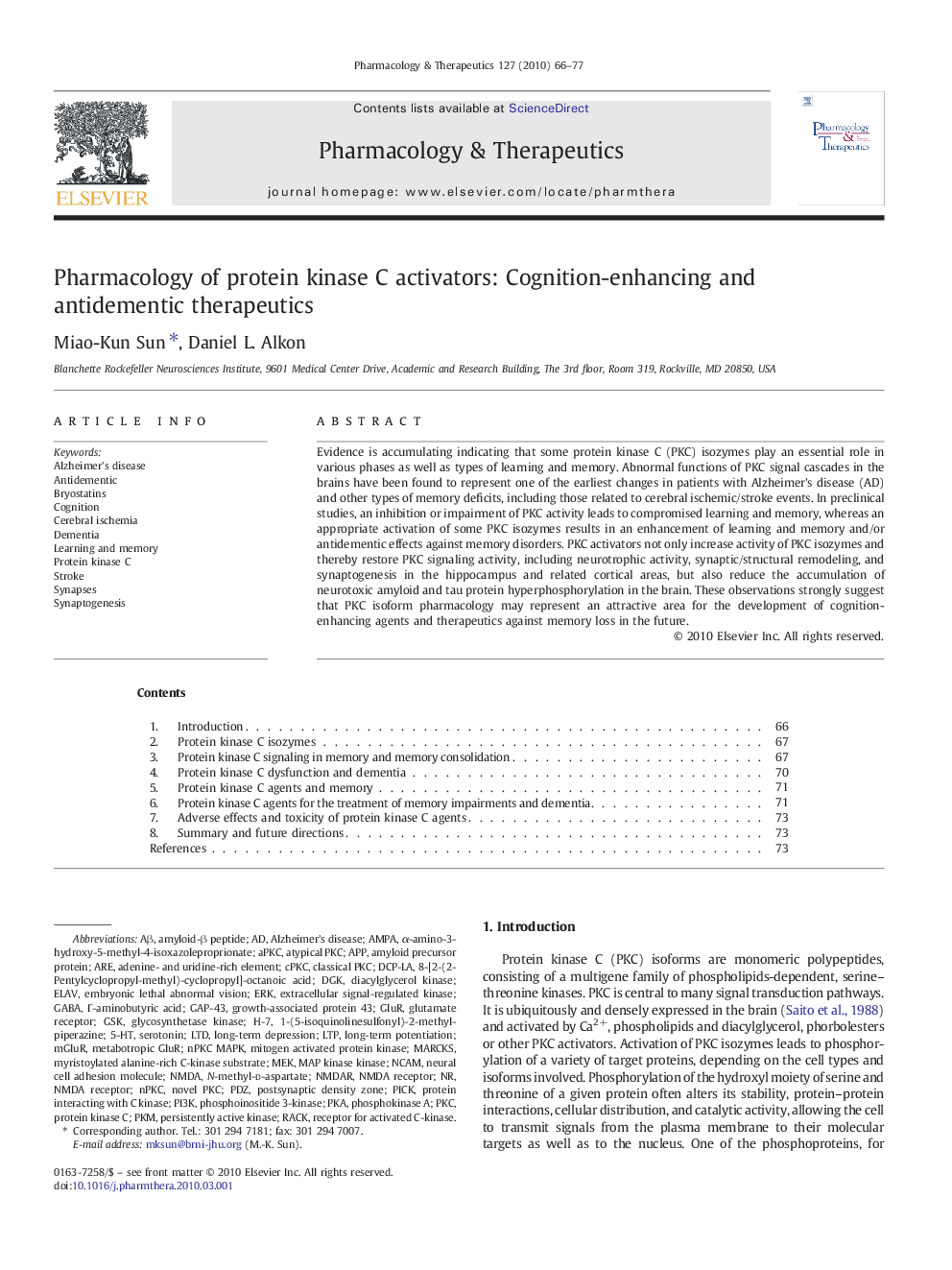| Article ID | Journal | Published Year | Pages | File Type |
|---|---|---|---|---|
| 2563537 | Pharmacology & Therapeutics | 2010 | 12 Pages |
Evidence is accumulating indicating that some protein kinase C (PKC) isozymes play an essential role in various phases as well as types of learning and memory. Abnormal functions of PKC signal cascades in the brains have been found to represent one of the earliest changes in patients with Alzheimer's disease (AD) and other types of memory deficits, including those related to cerebral ischemic/stroke events. In preclinical studies, an inhibition or impairment of PKC activity leads to compromised learning and memory, whereas an appropriate activation of some PKC isozymes results in an enhancement of learning and memory and/or antidementic effects against memory disorders. PKC activators not only increase activity of PKC isozymes and thereby restore PKC signaling activity, including neurotrophic activity, synaptic/structural remodeling, and synaptogenesis in the hippocampus and related cortical areas, but also reduce the accumulation of neurotoxic amyloid and tau protein hyperphosphorylation in the brain. These observations strongly suggest that PKC isoform pharmacology may represent an attractive area for the development of cognition-enhancing agents and therapeutics against memory loss in the future.
